- Home
- Robin Cook
Death Benefit Page 12
Death Benefit Read online
Page 12
Dr. Jerred L. Trotter, former plastic surgeon, current hedge fund maven and LifeDeals angel investor, was holding court alongside his longtime number two, Maxwell Higgins. There was always a table at Terrasini for Trotter, and the four men—Higgins, Trotter, Mathews, and Lefevre—were nestled at a table in a corner of the restaurant’s front room.
“I thought it couldn’t hurt,” Russell said, attempting to sound breezy. Edmund and Russell were glad Trotter could see them at short notice, even if it had meant killing a couple of hours until lunchtime.
“You know it’s my favorite place to eat. Unless I’m picking up the tab, right, Edmund?”
“There’s no danger of that, Jerry,” Edmund said. “Everyone knows it’s against your religion to pay for lunch.”
Trotter guffawed. “Damn straight,” he said loudly, and waved expansively toward no one in particular and a waiter quickly came over.
“That glass of Barolo, make it a bottle. I trust that’s okay, gentlemen? Second thought, bring the glasses and then the bottle in a few minutes. I need a real drink after the morning I had.”
Edmund looked on, suppressed irritation sticking in his craw. That little sideshow just set him back at least a couple hundred bucks. But scenes like this were part of the cost of doing business with Jerry Trotter.
“No serious problems, I hope, Jerry,” Edmund said.
“Everything’s a fucking problem,” Jerry said in his usual penetrating voice. A man in a Cucinelli sweater who’d brought his family to lunch turned around and shot Jerry a look.
“Whoops, apologies, forgot where I was,” Jerry said to the man.
“I thought we should meet in the office,” Edmund said. “You know, easier to speak freely.” Jerry Trotter, like a lot of financiers, swore like a stevedore. Edmund didn’t care about that but he wanted to discuss LifeDeals’ predicament without having to hold back in front of the other diners.
“Got to eat, Edmund,” Trotter said, picking up the menu.
“Of course, Jerry.”
Edmund thought that Jerry Trotter probably knew the menu better than the restaurant’s own waitstaff. Everyone insisted on playing these childish games, thought Edmund, aware that, once more, he was the one being toyed with. Edmund studied Trotter’s face. He knew the man was at least sixty, but he looked closer to forty-five with his sweep of gunmetal hair, a few trace laugh lines, and bright blue eyes still a shade of azure that caused more than a few people to take a breath when they saw them. If he’d had any cosmetic work done, it was very good.
“Max, what was that special again?”
The waiter was handing out the glasses of Barolo.
“The pasta?” Higgins questioned with his upper-crust London accent. “Orecchiette with sweet sausage, broccolini, touch of ricotta. Sounds marvelous.”
“Ah, gives me a hard-on just to think about it. Of course. Times four, what do you say, guys? Cold day, calls for some soup, I think. The other special, squash soup, little bit of cream, am I right, Max? All around, sir, if you don’t mind.”
The waiter agreed it was a great selection. Edmund made a point of looking at his menu a couple of beats longer, then folded it and handed it over. He was too upset to protest. Now Trotter was swirling the red wine around in his glass. It was a lovely ruby color and on another occasion, Edmund would have been rhapsodizing about it.
In the often flamboyant world of hedge fund management, Jerry Trotter was something of a celebrity. He’d already enjoyed one very successful career as a plastic surgeon, catering mostly to the moneyed ladies of New York’s Upper East Side, for whom he performed face, eye, and buttock lifts. In truth, Trotter was a better showman than he was a surgeon. He knew, like everyone in the medical profession, that during medical training grades counted more than the need to display particularly good physical skills in obtaining training positions in such surgical specialties as the eye or brain, or in plastic surgery. Trotter had made sure he always got good grades to make up for his hand-eye coordination, which was poor enough for him to find surgery a taxing grind. But that was in the past, and he didn’t need good hand-eye coordination to manage money.
Trotter had always enjoyed looking after his own money and taking the odd risk here and there. After years of working six days a week at his practice, he had a lot of it to manage. Trotter had known Max Higgins for years and well enough to know he was keen to strike out on his own from his trading position at Goldman. Trotter made a proposition to Higgins: we’ll set up a fund, you run it and teach me what you know, and I’ll supply the money. It worked, and Trotter quickly found that his patients trusted him and were grateful and many were happy to let him invest for them. Trotter was a quick study and soon his fund, the immodestly and unimaginatively named Trotter Holdings, was heading toward the middle rank of name funds.
“So, Edmund, Russell, what was so urgent that we had to meet today?”
Russell looked over at Edmund before he started. The delay in Trotter being able to meet with them had at least allowed Edmund and Russell to decide how they were going to present their news to Trotter. They’d sat in a diner on Lexington Avenue for an hour and strategized.
“We have a potential public relations issue we want to give you a heads-up about. We thought you might be able to help us get out ahead of the possible publicity—nip it in the bud, so to speak.”
“Edmund, has your checkered past finally caught up with you?” Jerry asked, not sounding as though he was joking at all.
“We’ve heard about some medical research that’s taking place,” Russell continued, to spare Edmund from having to respond. “It’s at an experimental stage, with no guarantee it’s going to work or anything, but in some quarters it’s being taken more seriously than in others.”
“How does that affect LifeDeals?” asked Jerry, who glanced between Edmund and Russell even though it was Russell who was speaking. All the joviality had left his voice. The two waiters brought over the soup and left it quietly, detecting the tension at the table.
“It may not mean anything,” Russell added. “As I said, we want to get ahead of any potential bad publicity.”
Jerry Trotter picked up his spoon and tasted a mouthful of soup. It was delicious, of course, but when he sensed he was about to hear something unpleasant, his appetite faltered. “Russell, you’re going to have to tell me a little more clearly what’s going on.”
“Okay, Jerry, sure. There are a couple of researchers at Columbia who think they can grow artificial organs using human stem cells that they make from a patient’s own cells. Obviously I don’t know the details, but the process is called organogenesis. It’s supposed to start what will be called regenerative medicine. If they can grow new pancreases, for example, they can help people with diabetes live longer. But at this point, it’s a huge ‘if.’”
“I read something about that idea in some research we did on our due diligence for LifeDeals, but it sounded like science fiction,” Jerry said.
“Apparently not anymore. The future is now, as they say. Or it might be,” Russell said.
“How many people know about this?” Max Higgins asked.
“Not many,” Russell said. “Outside Columbia and the stem cell field, very few is my guess.”
“How did you hear about it?”
There was a pause. This was where it was going to get a lot trickier.
“Gloria Croft told us,” Edmund said.
Max Higgins quickly figured out the implications and, way ahead of Trotter, asked Russell the main question.
“Is she taking any action?”
“Yes.”
“And knowing Gloria, she’s shorting LifeDeals, am I right?”
“Yes.”
“Hold on, hold on, wait a second,” Jerry said. “LifeDeals is being shorted because of some work being done in a lab at Columbia?”
“I’m afraid so, Jerry.”
Higgins went on, “Am I to assume that some numbers have been run looking at cash projections based o
n a potential breakthrough in diabetes treatment? And that the projections don’t look so good?”
“Is he right?” Trotter asked. Higgins had got right to the heart of the matter in seconds.
“Broadly, but look—”
“So he is?” Trotter questioned.
“As I said, it’s early in the—”
“Would you mind telling me how this . . . this fucking disaster is what you would describe as a public relations issue?” Jerry was hissing, using his soup spoon to point first at Edmund, then at Russell. The table was silent until Max Higgins spoke up again.
“The science may fail eventually, but with Gloria Croft taking a position, investors are going to be alarmed when they find out. Then it becomes as much about Gloria as about the science. She’s a barometer. So from that perspective, they’re right, Jerry, it’s a PR problem first.”
“And if the science succeeds?” Jerry said.
“Then we have a bigger problem,” said Edmund.
Jerry put down his soup spoon and took a large drag on his $30-a-glass Barolo.
“You guys didn’t see this coming?”
“Obviously not,” Edmund said. “It’s a once-in-a-century breakthrough if it happens. You can’t do projections for being hit by an asteroid.”
No one was eating now. The waiter, coming by for a second time, asked if anyone was still working on their soup and no one was. Yes, the soup was fine, but everyone was preoccupied. The uneaten soup disappeared.
At Jerry’s insistence, Russell walked him through what they knew of the research. He made a point of saying that there was no guarantee it would succeed; the odds had to be that it wouldn’t because in the vast majority of research projects there was always some major unanticipated obstacle that would arise to thwart the hoped-for result.
“So what are the chances it will succeed?” Trotter questioned.
Edmund said there was no way to know. He then had Russell talk about the effects such an eventuality would have on LifeDeals’ cash flow. As Edmund and Russell had agreed before meeting with Trotter, Russell erred on the conservative side.
“What’s our position vis-à-vis the public offering?” Jerry directed his question at Max, his partner. He didn’t care that he might offend his lunch hosts.
“The lockup period expires May thirty-first,” Max said.
When an investor takes part in an initial public offering, they can’t sell their shares for a certain amount of time, in this case 180 days. Trotter Holdings was halfway through the mandated blackout period, meaning that Jerry Trotter and his fund were stuck with his shares for another three months.
“Shit. What are the chances of Gloria Croft keeping her mouth shut for three months?”
“Listen, Jerry, life insurance is still a twenty-six-trillion-dollar business,” Edmund said. “There’s plenty of money to be made. These diabetes policies are basically a drop in the bucket. It’s not a question of dumping LifeDeals shares, it’s a problem that needs a solution. That’s why we came to you, you’re the man who deals with problems, everyone knows that.” Edmund was being purposefully flattering and Trotter wasn’t unhappy about it. It’s true, he was a guy who could solve a problem, but this was a big problem and a new problem.
“Gloria Croft is so full of it you wouldn’t believe,” Edmund continued. “She was carrying on, telling us that our life settlement bonds were a bad product. Blah, blah, blah. She even told us that we should have been prosecuted over subprime.”
“She is one sanctimonious bitch, I know that for sure,” Jerry agreed.
“She was enjoying telling us about the research, twisting the knife.”
The pasta was set at each man’s place. There was slightly less tension around the table now—the problem had been identified, there was a common enemy, and the four of them were on the same side. Soup could be resisted, but the pasta was a different proposition, and each of the four men ate.
“Of course, there is a medical angle here, Jerry, that we think you can help us with. And Statistical Solutions is drawing up projections of the effect on revenue if we have to pull the diabetics’ policies. We’re going to need more capital. We can see if we can fill in these capital shortfalls with different initiatives. We’ve already directed our sales teams to go back and beat the bushes for metastatic cancer patients with big policies. It costs more money to buy those policies, but it’s completely risk-free.”
“More money, how so?” Higgins said.
“We’ve authorized the salesmen to offer more than the standard fifteen percent. Metastatic cancer patients are not going to cause us any problem about dying on time. It’s just that we have to be more aggressive to find them.”
“Okay, Edmund, I’m hearing you. Needless to say, Max and I will have to put our heads together and talk about this research issue. We want to see that Statistical Solutions data as soon as you have it, of course. And we have a bunch of meetings this afternoon, so I’m sorry but we have to eat and run.”
Jerry downed another forkful of his lunch and chased it with the remnants of his third glass of wine. The leave-takings were quick and less effusive than the greetings had been when the four men met. Trotter and Higgins left Edmund and Russell behind, picked up their coats and got into their waiting town car on Fifty-fourth Street.
So?” Trotter asked when he was settled in his seat. They were heading south on Park Avenue.
“Gloria Croft,” Higgins said. “She’s a pit bull.”
“I sense there’s history there with Edmund—perhaps it’s more about that than about the product.”
“Maybe it’s both. She’s found a flaw in the model, and it just happens to be Edmund Mathews, so it’s a bonus.”
“Be that as it may, we have to do something,” Jerry said. “And we can’t leave it to those two. They’re floundering, you can tell. There’s too much time till we can sell the stock.”
“I agree. But Edmund has a point: it’s still a good business even if there is a bump in the road with the current model. It will just take some juggling and deep breaths on our part. It’s not a time to panic. Besides, since we can’t sell the LifeDeals stock, we can’t panic even if we wanted to. I also agree that in an ideal world, he should have seen this coming. But our due diligence didn’t pick it up either. It’s a function of the times. Technology’s changing too fast just like markets are changing too fast. It’s getting harder and harder to factor this kind of thing in.”
“Well, I think we need to do some of our own research. A little more street-level. We can’t rely on Edmund et al. for that, clearly. Let’s get an investigator up to Columbia, sniff around a little. And someone can do some digging on Gloria Croft. A woman like that doesn’t get where she is without pissing a lot of people off. And maybe cutting some corners. We need to get some angles to work with, get some leverage.”
“Okay, I’ll get right on it. This is a new one on me—shorting stocks because of a medical breakthrough.”
“It’s new all-round. We may have to get creative,” Trotter said, watching the Park Avenue traffic move slowly in a steady afternoon drizzle.
Jerry Trotter knew how to make an entrance into a room, and he also knew how to make an exit. Edmund didn’t know what to make of what had just happened. Sure, Jerry was royally pissed when he first heard about the problem, but he seemed calmer when he left. The problem was that the departure had been so sudden.
“What do you think?” Edmund asked Russell. They had ordered cappuccinos.
“For me, Higgins is the brains of that operation, he sees the bigger picture,” said Russell. “It didn’t take him long to zero in on the heart of the problem. They definitely got the message.”
“Do you think they’ll come up with some suggestions?” Edmund asked.
“I do,” Russell said. “I think it was right to tell them early in the game. It feels good to have Jerry Trotter and his team working on this with us. I just hope they get back to us soon.”
“My guess is that
he will,” Edmund said. “Jerry isn’t the kind of guy who’s going to watch while his sixty million dollars turns into pocket change. But I do have one reservation.”
“What’s that?”
“I never can be a hundred percent confident Jerry’s working with us.”
17.
COLUMBIA UNIVERSITY MEDICAL CENTER
NEW YORK CITY
MARCH 3, 2011, 6:23 P.M.
Pia glanced up from her reading to see that it was almost six-thirty, and she wondered how long she was going to have to wait. She was sitting in the deserted lab outside her office, which continued to be off-limits. She was waiting for Rothman, who was still in the biosafety unit trying to finish up the data for the Lancet article. Yamamoto had told her to wait because Rothman wanted to speak with her. What about, she had no idea. Whatever it was, it made her feel uneasy.
The day had been interesting in some regards although it had not been one of her best. She had spent the morning doing the lab equivalent of KP duty, washing and rewashing glassware. For the second day in a row Pia had been actually late, not just late by the secretary Marsha Langman’s standards. For the second day in a row George had failed to appear at her door, and she wondered why. It irked her to a degree because she’d come to count on it, even though she was the first to agree that he wasn’t obliged to come and wake her. She’d slept badly again, as she’d been doing for a week or more. As per usual it was nightmares involving childhood memories she’d battled to suppress and which surprised her in their lucidity. Even after years, they still possessed ample power to shock and disturb her.
The head technician, Arthur Spaulding, had seemed amused by Pia’s punishment. He had made a point of detouring when in the lab to pass by Pia, saying nothing. He didn’t have to, his smirk was enough. Spaulding had been at the research center for years, and he liked things done just so. He’d started working for Rothman only in the last eighteen months, and Spaulding got on with him about as well as his predecessor had before he was fired. Spaulding seemed to take exception to any irregular request from Rothman, and Rothman being Rothman, most of his requests were irregular.

 Shock
Shock Mutation
Mutation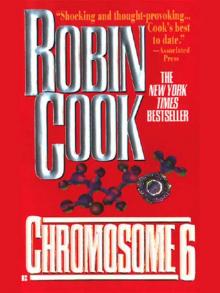 Chromosome 6
Chromosome 6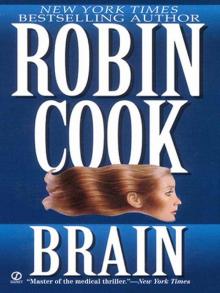 Brain
Brain Intervention
Intervention Invasion
Invasion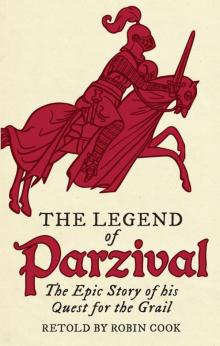 The Legend of Parzival: The Epic Story of His Quest for the Grail
The Legend of Parzival: The Epic Story of His Quest for the Grail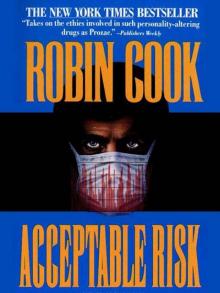 Acceptable Risk
Acceptable Risk Cell
Cell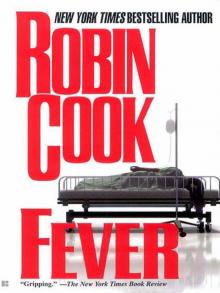 Fever
Fever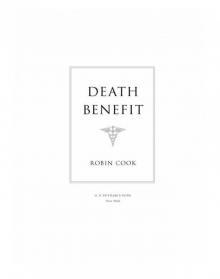 Death Benefit
Death Benefit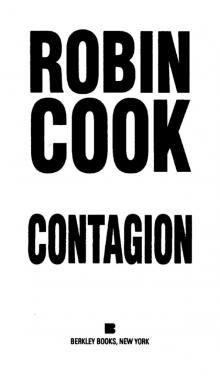 Contagion
Contagion Mindbend
Mindbend Coma
Coma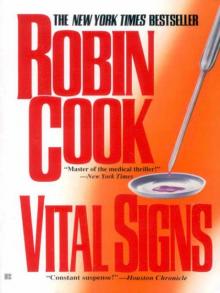 Vital Signs
Vital Signs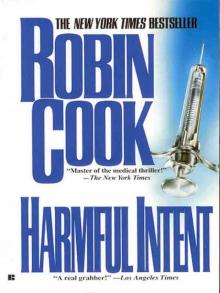 Harmful Intent
Harmful Intent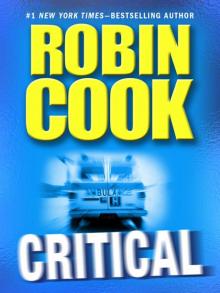 Critical
Critical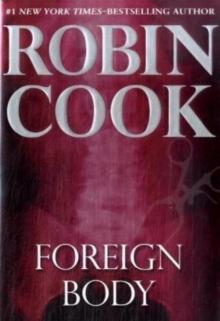 Foreign Body
Foreign Body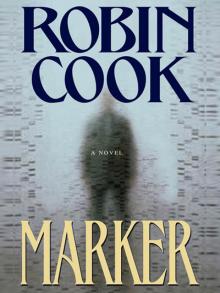 Marker
Marker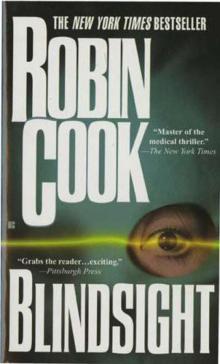 Blindsight
Blindsight Terminal
Terminal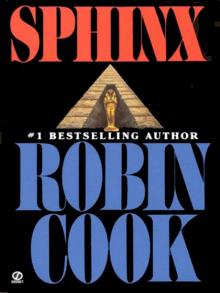 Sphinx
Sphinx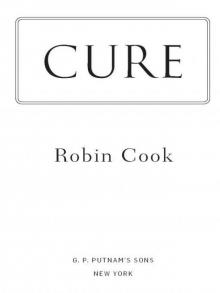 Fatal Cure
Fatal Cure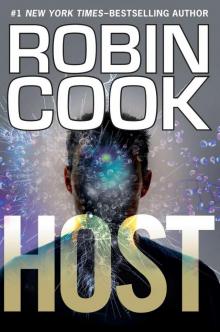 Host
Host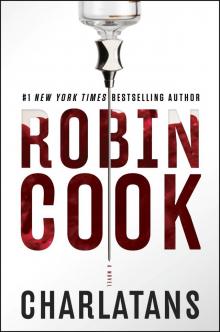 Charlatans
Charlatans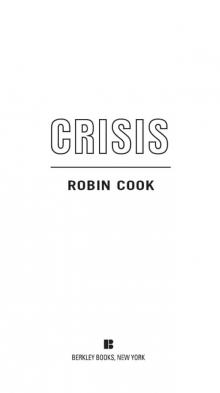 Crisis
Crisis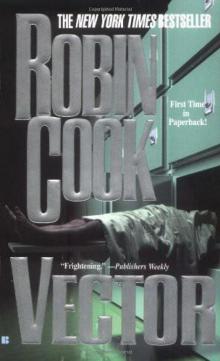 Vector
Vector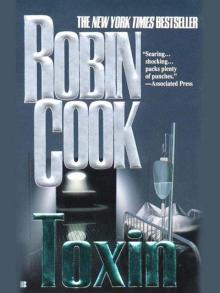 Toxin
Toxin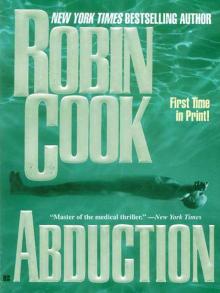 Abduction
Abduction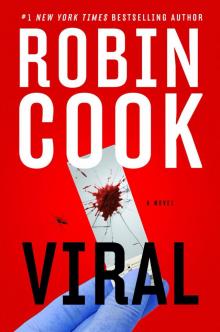 Viral
Viral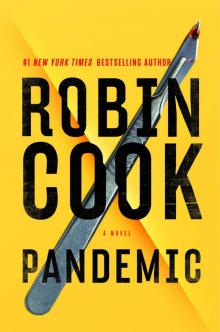 Pandemic
Pandemic Outbreak
Outbreak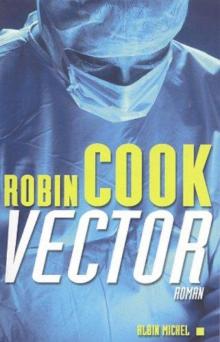 Vector js&lm-4
Vector js&lm-4 Godplayer
Godplayer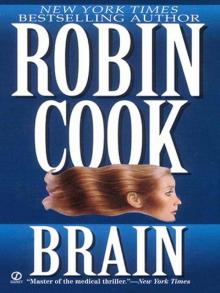 A Brain
A Brain Year of the Intern
Year of the Intern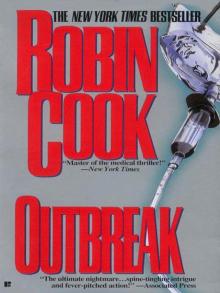 Outbreak dmb-1
Outbreak dmb-1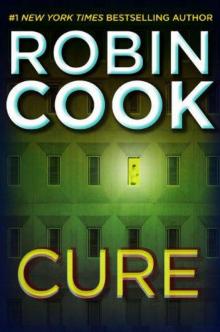 Cure
Cure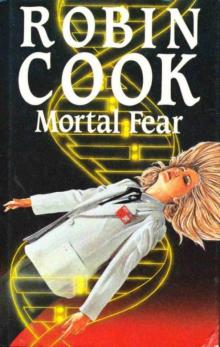 Mortal Fear
Mortal Fear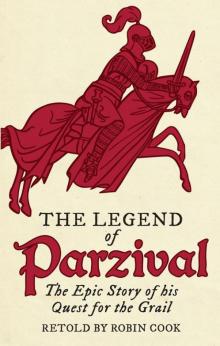 The Legend of Parzival
The Legend of Parzival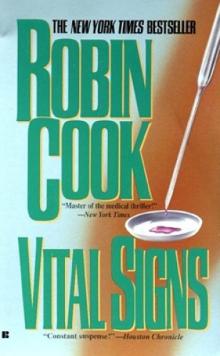 Vital Signs dmb-2
Vital Signs dmb-2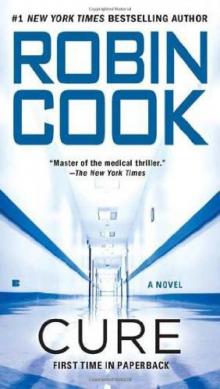 Cure (2010) sam-10
Cure (2010) sam-10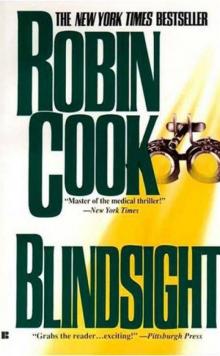 Blindsight sam-1
Blindsight sam-1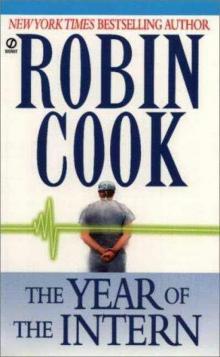 The Year of the Intern
The Year of the Intern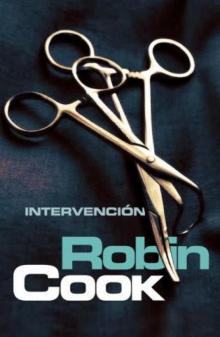 Intervention sam-9
Intervention sam-9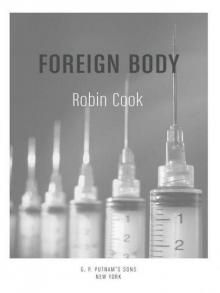 Foreign Body sam-8
Foreign Body sam-8